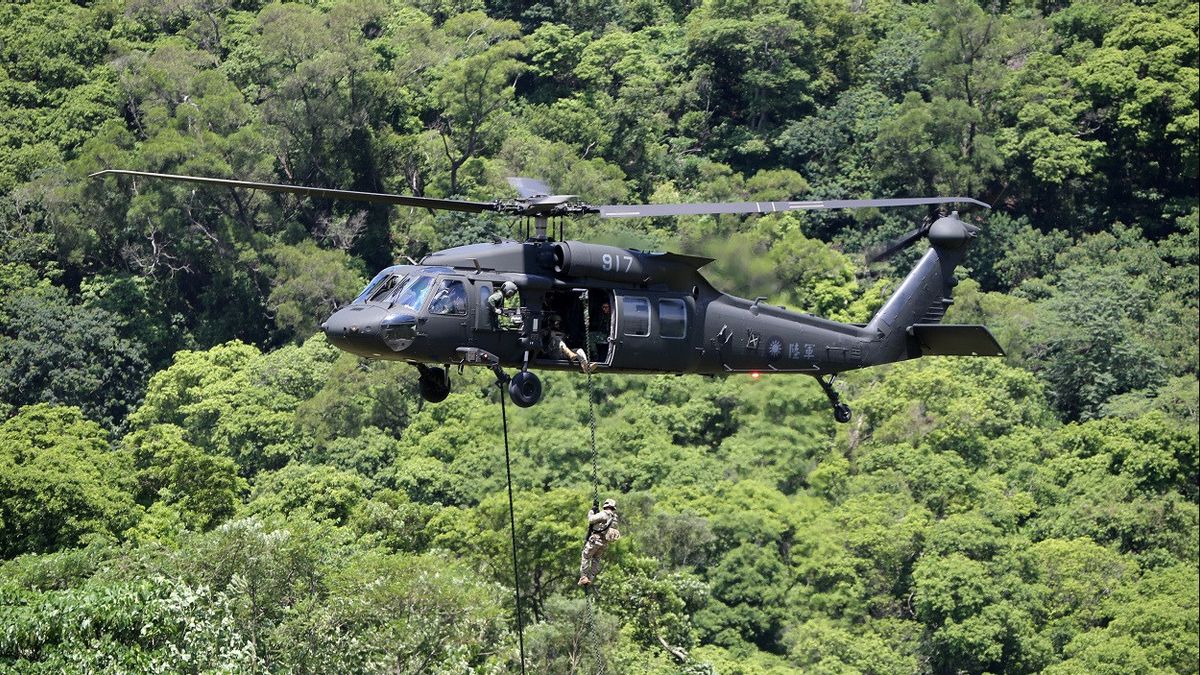JAKARTA - Taiwan's parliament on Tuesday passed nearly $8.6 billion in extra spending, in its latest effort to boost defense capabilities to deal with growing threats from China.
The government is proposing a five-year special defense budget of around 8.57 billion US dollars, around IDR 122,540,287,500,000 starting in 2022, as Chinese warplanes penetrated its air defense zone at an unprecedented rate over the past year.
Democratic Taiwan is under constant threat of invasion by authoritarian China, which claims the self-governing island as part of its territory to be seized one day - by force if necessary.
Beijing's tensions with the island have escalated rapidly since President Tsai Ing-wen came to power in 2016, as she views the island as a sovereign nation, not part of "one China".
Last year, Taiwan recorded attacks by some 970 Chinese warplanes into its air defense zones, according to a database compiled by AFP, more than double the 380 carried out in 2020.
On Tuesday, Taiwanese lawmakers agreed unanimously to pass a special budget, although they cut it by Tw$310 million. The package exceeds the record annual defense budget of Tw$471.7 billion set for 2022.

This budget is to acquire a variety of precision missiles and high-efficiency naval ships in mass production in the shortest period of time, to enhance the island's sea and air capabilities, the government said.
J. Michael Cole, a political and military analyst based in Taipei, called the special budget an "exciting and much-needed development" because Taiwan prioritizes "asymmetric" capabilities, such as unmanned vehicles, anti-ship missiles, and air-to-ground cruise missiles.
"Many of these are 'counter-force' capabilities, with a range long enough to hit targets along China's coastline, in line with the direction Taiwan's Ministry of Defense has taken in recent years", said Cole, a senior research fellow for the Macdonald-Laurier Institute, citing CNA January 11th.
"This move will also be welcomed by the United States, which frequently complains that Taiwan is too focused on large conventional platforms to the detriment of smaller, more easily deployable and cheaper 'asymmetric' capabilities", he said.
The budget includes coastal anti-ship missile systems, locally developed Wan Chien cruise missiles, attack drone systems to the installation of combat systems on coast guard ships.
Cole also points to the benefits of ensuring faster delivery, as much of the weaponry is produced domestically.
SEE ALSO:
"The latter is an important part because Taiwan needs to ensure it has the ability to prevent, and if needed to counter, Chinese attacks now, not five, ten years from now", he said.
To note, China has published several military exercises recently simulating an invasion of the island.
For decades, most analysts agreed that invading Taiwan was a challenge that China could not do. But Beijing has dramatically closed the gap in recent years.
The English, Chinese, Japanese, Arabic, and French versions are automatically generated by the AI. So there may still be inaccuracies in translating, please always see Indonesian as our main language. (system supported by DigitalSiber.id)













